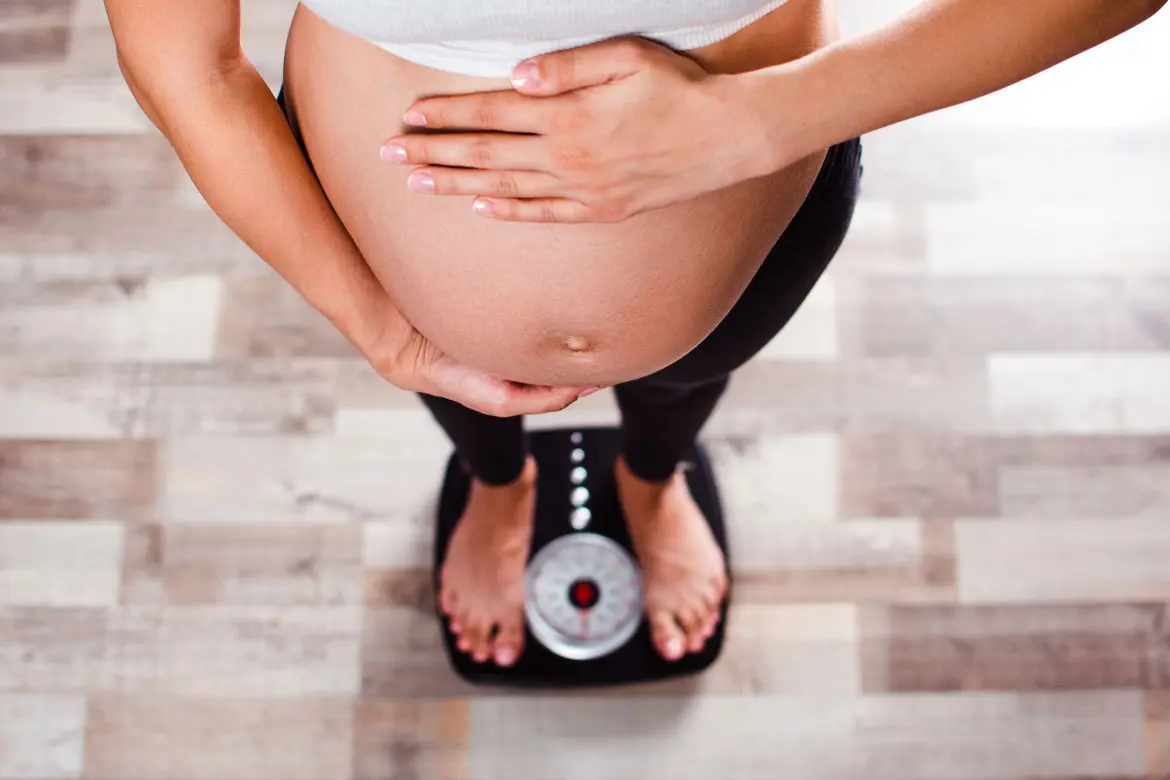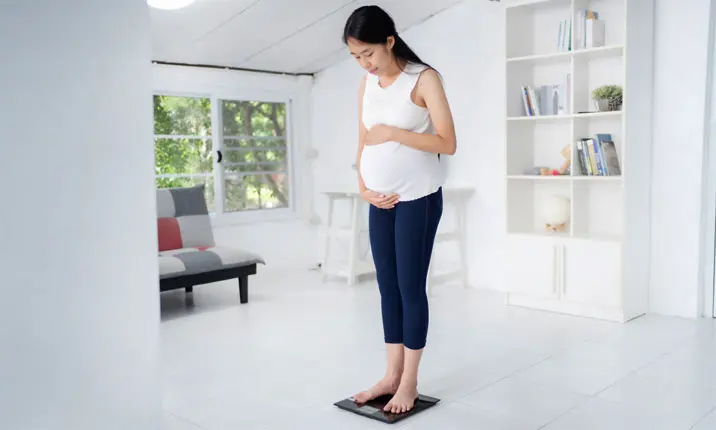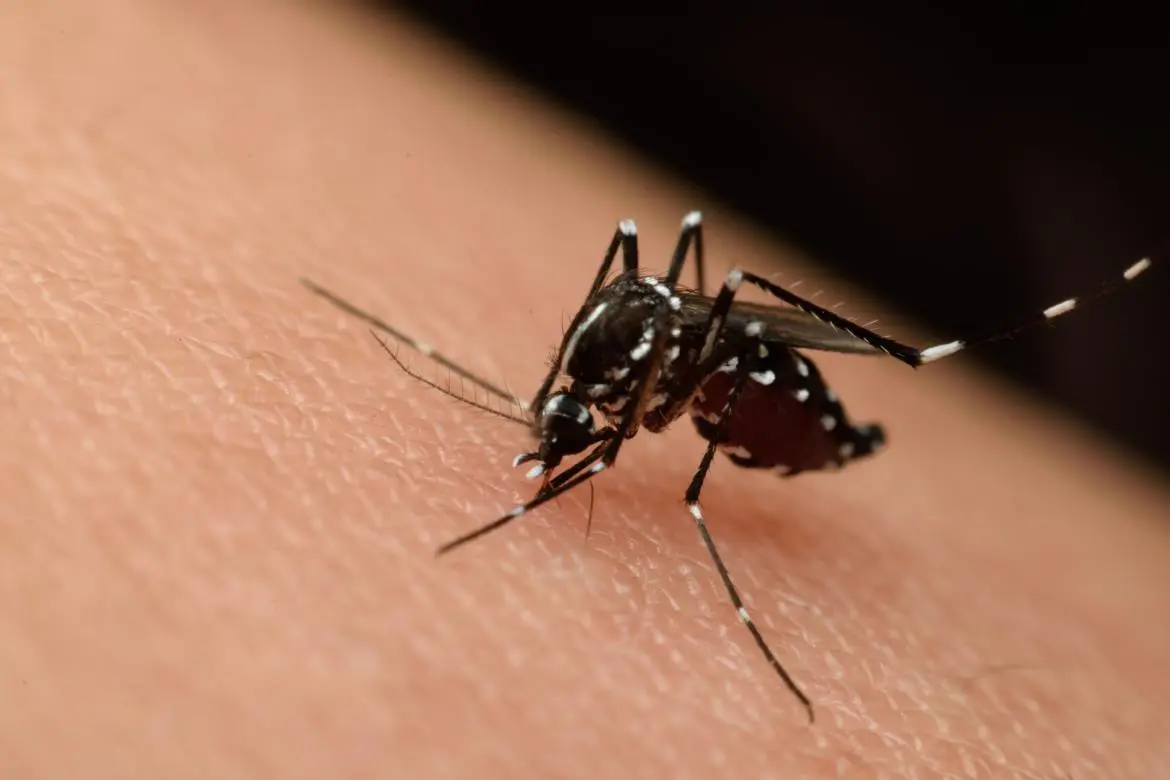Pregnancy diets are often associated with eating for two, and excessive weight gain during this period is usually attributed to baby needing to receive extra nourishment for growth.
The truth is (and for some, it could be a hard truth), being pregnant is not a passport to indulge in your favourite foods through the term of your pregnancy.
Weight gain will be inevitable during pregnancy, and a healthy rate of weight gain is a positive sign that baby is growing healthily and well.
The question is, how do we ensure that your growing foetus is receiving the adequate amount of nutrients without you putting on excessive weight during your pregnancy?
Here are some key answers to question about healthy weight gain that moms-to-be should take note of.
What is healthy pregnancy weight gain?
A pregnant mother can sometimes feel overwhelmed with the demands of being pregnant. Some stressors include having to be careful with food selection, having to make lifestyle adjustments to be ‘healthier’, refraining from activities that could risk injury or harm to the baby, and ultimately, having to keep track of how the pregnancy is progressing. Exacerbating these worries, is the fact that hormonal changes in the body can affect both mood and ability to focus on things.
Hence, weight gain and tracking how that is happening during pregnancy would be the least among the concerns a mother-to-be faces. Yet, it should not be ignored, for the sake of both mother and baby.
If you’re not too sure how much weight you should be gaining during the entire period of pregnancy, here’s a guide for women with a healthy pre-pregnancy Body Mass Index (BMI) of between 18.5 – 24.9:
- A healthy range of weight gain would be between 11.5 – 16kg.
- If twins are expected, the recommended weight gain would be between 17 – 25kg.
Do take note that this is a guide, and the recommended range can differ for different women, especially if they’re from different BMI groups.
During your first prenatal check-up, have a discussion with your obstetrician & gynaecologist (O&G) about the amount of weight you should be gaining throughout your pregnancy.
Why does my appetite change during pregnancy?
Natural changes in the body and pregnancy symptoms can affect your appetite during pregnancy. You may experience an increase in your appetite, a decrease, or even a combination of both.
If you’re always feeling hungry, or experiencing an increase in your appetite, that’s normal. It’s your body’s cue for you to meet the nutritional demands of your growing baby.
A decrease in appetite on the other hand could be due to hormonal changes in your body during pregnancy. These changes are responsible for symptoms such as nausea, vomiting, as well as making you more sensitive to things like taste and smell, which could affect your appetite.
Besides appetite changes, some women experience food cravings too. While the exact cause of pregnancy cravings is yet to be identified, hormonal changes are strongly suspected. From fried food, cakes, ice-cream and caffeine, food cravings during pregnancy are not unusual, but must be controlled well.
It is important to remember that while it is acceptable to occasionally give in to your cravings, for as long as they are deemed safe for consumption (alcohol is a big no-no), pay attention to your food intake. Munching away uncontrollably could easily lead to excessive weight gain during pregnancy.
Eating right during pregnancy
The core to gaining weight healthily during your pregnancy is to focus on the quality of your diet. It is all about having balanced, nutritious meals.
Here are some tips that will help you make the right food choices:
Food
- Remember that pregnancy is not about eating for two
- During your first trimester, you should continue to eat the same amount of food as you would before you found out that you were pregnant
- During your second trimester, your body will begin needing more calories, to the tune of an additional 300 calories daily. This is equivalent to a cup of wholegrain cereal with milk, or a chicken curry puff
- During your third trimester, you’ll require about an additional 500 calories daily, which is equivalent to a plain bagel with cream cheese, or a bowl of dry fishball noodles
- Aim to eat at least 4 servings of vegetables and 2 servings of fruit daily. Adequate fibre intake also helps keep constipation at bay
- Avoid raw food, undercooked meat, cold cuts and food dishes which may have the potential to be poorly prepared as it could increase your risk of falling ill due to contamination
Fluids
- Pregnant women are encouraged to drink at least 2.3 litres of water a day.
- Do avoid sugary drinks.
- There are a variety of ways to keep yourself hydrated during pregnancy besides drinking plain water. Options include caffeine-free herbal teas, fruit juices, soymilk and fruit-infused water.
Why is excessive weight gain a concern during pregnancy?
Truth be told, this is the reason why you’re required to step on the weighing scale every prenatal check-up. Your O&G will monitor your weight to ensure that you’re gaining weight at a steady pace.
Excessive weight gain during pregnancy can increase the possibility of pre-eclampsia and gestational diabetes. These pregnancy-related health conditions can put you and your baby’s health at risk. With early diagnosis and close monitoring, these conditions can be prevented and a healthy pregnancy can be ensured.
Should a pregnancy-related health condition, such as those aforementioned, speak to your O&G about how you can take proactive steps to look after your health, as well as your baby’s. Treatment options are available to manage these conditions so that both mother and child are healthy.
Ultimately, good health starts from within the womb. As the saying goes, you are what you eat. This is where a healthy diet contributes to a healthy pregnancy. Making the right food choices is also linked to a healthy birth weight for baby, good brain development and reduces the risk of conditions such as anaemia.














